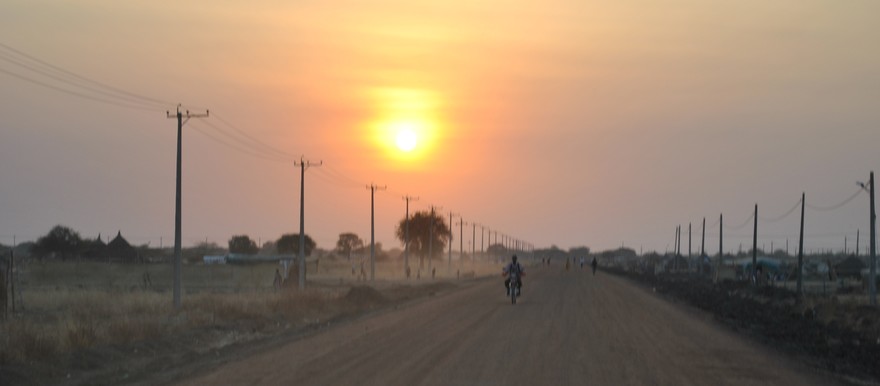A top politician of the disputed Abyei Area has embraced the ‘tamazuj’ concept for the entire border region but rejected a proposal to make Abyei a special ‘integrated area’.
Edward Lino, a senior member of South Sudan’s ruling party SPLM, said that he rejects the Sudanese proposal to make Abyei an integrated area under joint dominion. He dismissed the phrase ‘integrated area’ (منطقة تكامل) as a political phrase that is promoted only by the Khartoum government.
In an interview with Radio Tamazuj today, Lino explained that he embraces a broader, less political, notion of integration in the border areas. Tamazuj, which means ‘blending’ or ‘intermingling’, refers to the diversity of the Sudanese borderlands with the South, where Arabic and Arab culture predominate alongside diverse other cultures such as Dinka, Balanda, Nuer, Shilluk, Ingessana and Moro.
He argued that other border areas are no less ‘integrated areas’ than Abyei, including places that are incontestably within the borders of South Sudan. “Warawar, the joint market between Aweil and Misseriya, why should it not be also an integrated area? Pariang, which is just a little bit to the east of Abyei and where Arab traders come, why should it not be an integrated area? No matter what, it‘s about the meeting of people, a region where people meet,” said Lino.
The Abyei native emphasized that the entire border region is one in which different tribes and ethnic groups blend. He asserted that there are nearly 12 million people living along the border areas from Ethiopia in the east to Rehed Al Berdi in western Sudan. Nomadic tribes cross the border seasonally, moving with their cattle in the summer and meeting tribes from farther south, then during the rainy season returning to farms in the north, such as in South Kordofan.
“When we talk about blending of people, it’s bigger than the Abyei example. A region that has not even a (peace) market cannot be an examplar of an integrated region,” he said.
Khartoum’s proposal to make Abyei an ‘integrated area’ is one of two proposals that have been mentioned as possible solutions for the latest round of negotiations in Addis Ababa. The second proposal is to divide Abyei between Sudan and South Sudan. The negotiators from Juba reject both these ideas because they want Abyei to belong fully to the newly sovereign South.
Lino stated that Khartoum’s proposal could disrupt the calm situation in Abyei: “The Sudanese government has the right to propose what it proposes. But we say that because of the current situation and the situation the region has gone through, it cannot be divided in any way. This is an attempt to displace people from the region to avoid the referendum which people are about to agree upon. They (Khartoum) accept the referendum in word only — but not in fact.”
He also called on the people of Dinka Ngok to return to their lands and urged the Misseriya to listen to leaders who would work for sake of the tribe. He asserted that there are a lot of commonalities between the people of the two sides and that they should start looking into their commonalities and forget their differences and not let any official or governmental issue disrupt the relations between the tribes.
Edward Lino is one of four members of the Abyei Joint Oversee Committee (AJOC). The committee was created by the Agreement on Temporary Arrangements for the Administration and Security of the Abyei Area, signed 20 June 2011.
Photo by Radio Tamazuj: A main street of Abyei town at dusk



